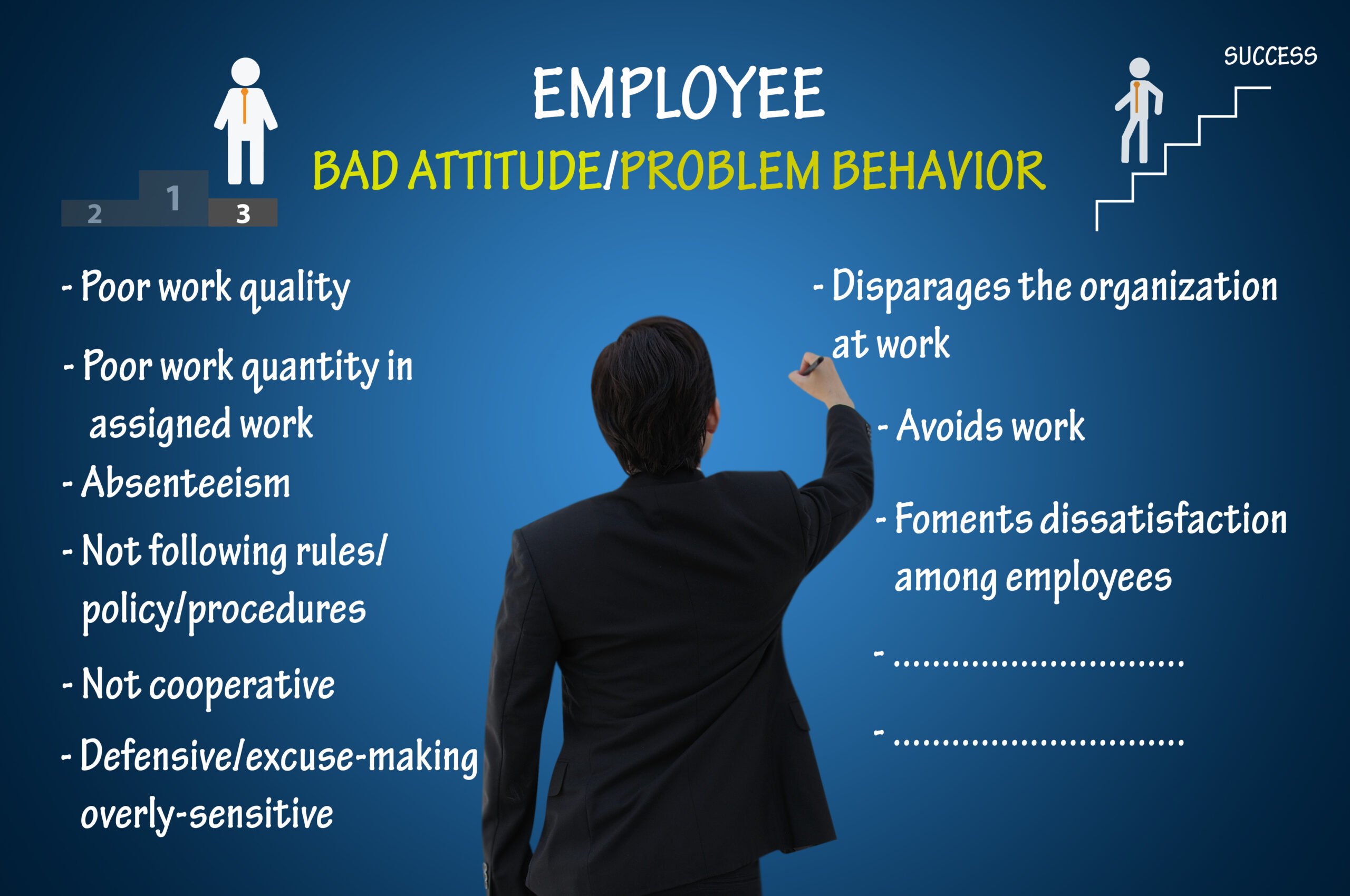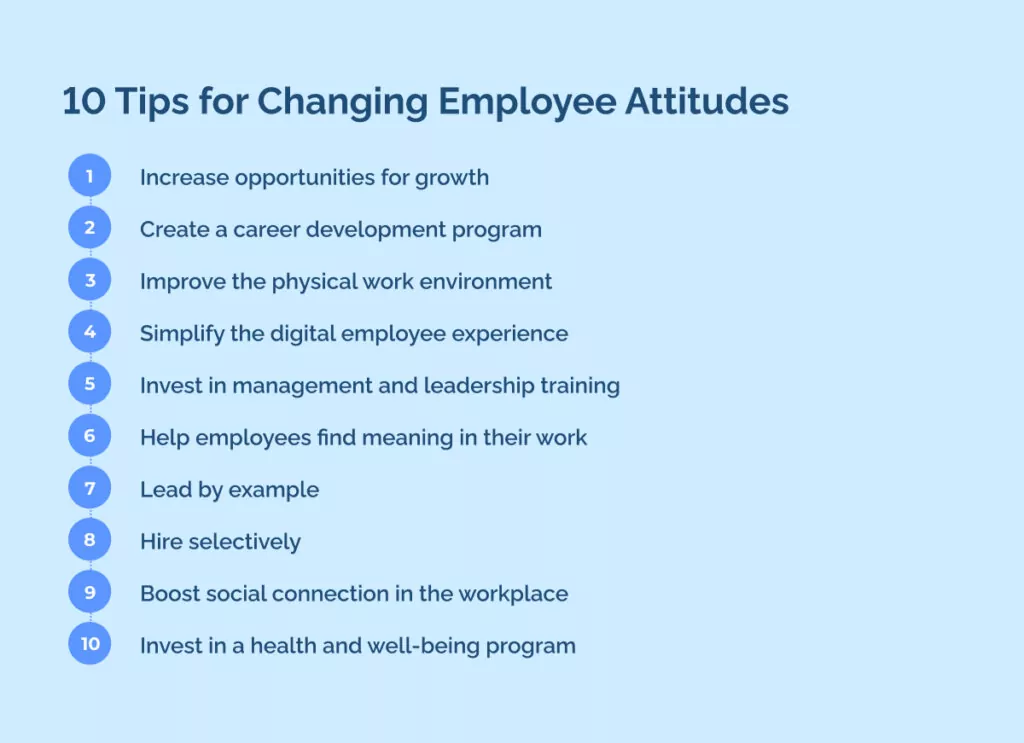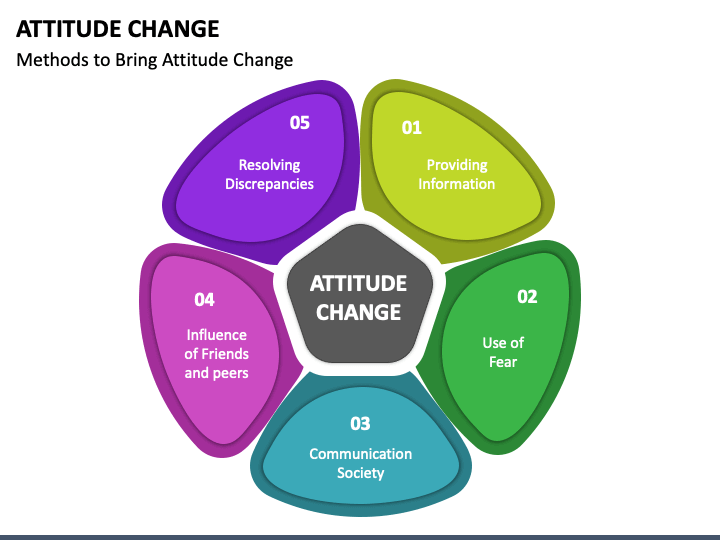How To Change Negative Attitude Of Employees

A pervasive negative attitude among employees can significantly impact a company’s productivity, morale, and overall success. Experts agree that addressing this issue requires a multifaceted approach focusing on understanding the root causes and implementing tailored strategies to foster a more positive and engaged workforce.
Companies grappling with widespread negativity are looking beyond simple motivational speeches and exploring deeper, more sustainable solutions. These strategies range from improved communication and leadership training to employee empowerment initiatives and a renewed focus on recognizing and rewarding positive contributions.
Understanding the Roots of Negativity
Identifying the source of negativity is the first critical step. Common culprits include poor management practices, lack of clear communication, inadequate compensation and benefits, and a toxic work environment. According to a recent survey by Gallup, only 34% of employees in the U.S. are engaged at work, indicating a significant potential for negativity stemming from dissatisfaction.
"Often, negativity is a symptom of a larger systemic problem," explains Dr. Anya Sharma, a leading organizational psychologist. She emphasizes the importance of conducting thorough employee surveys and holding open forums to gather feedback and identify pain points.
Improving Communication and Transparency
One of the most effective ways to combat negativity is through clear and consistent communication. Employees need to feel informed about company decisions, their roles, and expectations.
Implementing regular team meetings, company newsletters, and open-door policies can facilitate dialogue and address concerns promptly. Transparency builds trust and reduces the potential for misinformation and rumors, which often fuel negative sentiment.
Empowering Employees and Fostering Autonomy
When employees feel they have control over their work and contribute meaningfully, negativity tends to decrease. This can be achieved through delegation, providing opportunities for skill development, and encouraging innovation.
Allowing employees to participate in decision-making processes and offering flexible work arrangements can also boost morale. "Autonomy is a key driver of employee engagement and a powerful antidote to feelings of helplessness and resentment," states a recent report by the Society for Human Resource Management (SHRM).
Recognizing and Rewarding Positive Contributions
Acknowledging and appreciating employees' efforts is crucial for fostering a positive work environment. This doesn't always require monetary rewards; simple gestures like verbal praise, public recognition, or small tokens of appreciation can go a long way.
Implementing a formal employee recognition program can also institutionalize this practice and ensure that positive contributions are consistently acknowledged. Companies like Google and Zappos are well-known for their innovative employee recognition programs that contribute to a positive and motivated workforce.
Leadership Training and Development
The quality of leadership significantly impacts employee morale. Effective leaders inspire, motivate, and support their teams, creating a positive and productive work environment.
Investing in leadership training programs that focus on emotional intelligence, communication skills, and conflict resolution can equip managers with the tools they need to effectively lead and address negativity within their teams.
"Leaders set the tone for the entire organization,"says John Maxwell, a renowned leadership expert.
The Impact of a Positive Work Environment
Creating a positive work environment translates into increased productivity, reduced employee turnover, and improved customer satisfaction. Investing in employee well-being is not just a matter of ethics; it's a strategic business decision.
By actively addressing negativity and fostering a culture of positivity, companies can create a more engaged, motivated, and successful workforce. The long-term benefits of a positive work environment far outweigh the initial investment in implementing these strategies.


















